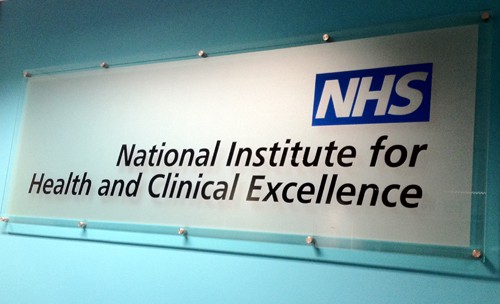Welcome to another rapid round-up of news, today covering developments in US drug pricing, England’s NICE and the European biotech sector

US drug prices
After Trump bluster, Azar gets serious on drug prices
While President Trump is well known for his shaky grasp of the details – not least in healthcare – his Health Secretary Alex Azar (pictured) is very well versed in its intricacies.
So when Azar made a detailed and very frank speech yesterday about the administration’s plans to bring down drug prices, it contained a lot more substance for pharma, PBM and health insurers to ponder.
He presented four strategies for reforming the Medicare system set out in the administration’s drug-pricing blueprint, and at times these looked very different to how the president had unveiled them last Friday.
The strategies are: improved competition, lowering out-of-pocket costs, enhanced negotiation, and incentives for lower list prices.
On price negotiation, Azar unveiled a range of options for reforming Medicare Part B and Part D.
“We are going to make negotiation more effective than it is today in our retail drug programme, Part D, and bring negotiation to where it doesn’t exist, in physician administered drugs, Part B.”
Like Trump, Azar had his own direct warning to pharma – but coming from an ex-pharma executive, the threats carried more of a sting.
“For too long, there’s been a lot of talk on drug prices, and no action. Drug companies have insisted we can have new cures or affordable prices, but not both. I’ve been a drug company executive – I know the tired talking points: the idea that if one penny disappears from pharma profit margins, American innovation will grind to a halt. I’m not interested in hearing those talking points anymore, and neither is the President.”
Many health and pharma policy commentators applauded Azar’s attention to detail.
Rachel Sachs, Associate Professor of Law, Washington University in St Louis tweeted: “My initial reaction was that this speech was clearly given by someone who 1) deeply understands the complex system of drug development, approval and reimbursement, and 2) truly wants to see thoughtful reforms.”
However she added in her Twitter thread: “The problem is that Secretary Azar’s statements – both procedural and substantive – don’t match the White House rhetoric on the topic. At all.”
This lack of coherence in policy has meant a lack of concrete action so far, and the markets were once again unruffled by the threats of new controls, with share prices of pharma and PBMs barely affected.
Read Secretary Azar’s full speech here: Remarks on Drug Pricing Blueprint
UK market access
Bayer loses out as rivals lower MS drug prices

Three companies marketing multiple sclerosis treatments in England have bowed to pressure to cut their prices following a review by cost effectiveness watchdog NICE.
Teva’s Copaxone, Biogen’s Avonex and Merck Serono’s Rebif have all been accepted for routine use on the NHS after the companies agreed to lower their prices – in addition to Novartis’ Extavia which had been the only recommended drug after a first cost appraisal. However Bayer will lose out after failing to offer a price cut on its Betaferon that is big enough to sway NICE.
Another product, Biogen’s Plegridy (pegylated beta-interferon) has also not been recommended, but will be assessed in a single technology appraisal.
The new price cuts have come about after a long-standing ‘risk sharing scheme’ for MS drugs was brought to an end by the Department of Health, after it was judged to be not providing good value for money.
European biotech
Xenikos raises $30m for potential cure for graft-versus-host
Netherlands-based biotech Xenikos has raised $30m from a Series B financing to fuel the development of its novel therapy for acute graft-versus-host disease (aGVHD).
The company says its T-Guard candidate antibody drug can restore the immune system in patients suffering from aGVHD, which often develops in patients following haematopoietic stem cell transplantation – and believes it could represent a cure for the condition.
Two new investors, Medicxi and RA Capital Management, participated in the financing, which will fund the development of T-Guard into phase III registration trials, arranging commercial-scale production and marketing approval submissions.
T-Guard consists of a unique combination of toxin-conjugated monoclonal antibodies that target the CD3 and CD7 molecules on T cells and NK cells.
A phase I/II study in 20 patients with severe steroid-refractory aGVHD suggested that after only one week of treatment, patients saw their immune system’s natural balance return – which Xenikos says offers a curative approach to patients with this severe and often fatal complication.
If the company, led by Chief Executive Dr Ypke van Oosterhout, can show that this curative effect is durable, it could have a very valuable drug on its hands. Janssen’s Imbruvica gained FDA approval for the chronic form of GVHD last year, but brings with it some serious side-effects.




